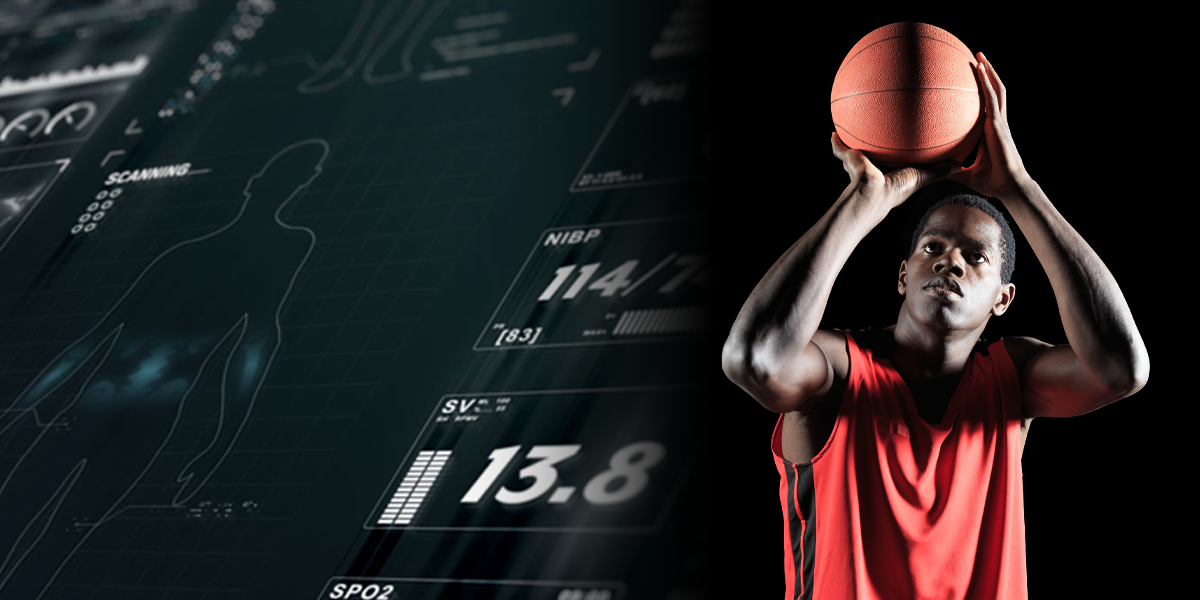Co-designed data science coursework enhances Black male athletes’ STEM identities

The final play of a close D1 football game begins, and the star wide receiver quickly analyzes the defense, predicting movements based on past patterns. Sprinting downfield, he calculates the trajectory and speed to outmaneuver the cornerback. As the quarterback throws the ball, he adjusts his pace to meet the ball’s arc. He leaps, considering the angle and speed needed to catch it while dodging defenders. Upon the catch, he pivots, evades tackles, and successfully reaches the end zone.
Through predictive analysis, rapid decision-making, and precise execution, he embodies data science principles. Despite his high level of analysis, this athlete’s STEM identity is not regarded as academic by the university he plays for. Black male athletes, who make up a small percentage of undergraduate students but are the majority of athletes in the lucrative industries of basketball and football, often fight against stereotypes about their intelligence that are rooted in racism and classism. A $3.4 million National Science Foundation (NSF) grant led by University of Maryland College of Information (INFO) Associate Professor Tamara Clegg aims to address this issue by enhancing athletes’ STEM identities through coursework and creating STEM career paths for them. INFO Associate Professors Sheene Erete and Daniel Greene, Professor Erianne Weight (University of North Carolina, Chapel Hill), Assistant Professor Malia Blue (University of North Carolina, Chapel Hill), and Associate Professor Zachary Kerr (University of North Carolina) will serve as co-principal investigators.
According to Clegg, principal investigator of Developing and Investigating Data Science Interventions Connected to University Athletics to Address Systemic Racism in Undergraduate STEM Education, or DataGOAT, the vision of the project centers on promoting “life-relevant learning” and making STEM and computing accessible, particularly to marginalized communities often excluded from these fields.
Clegg observes that athletes are brimming with potential and expertise. She says, “Athletes are young geniuses that we bring to our universities,” yet there’s a clear disconnect between their athletic prowess and academic pursuits. This separation makes them feel as though they have two full-time jobs, with no avenue to bridge athletics and academics.
Designing Courses with Athletes
The project will begin with an ethnographic study of a Division I football team in the Power 5 subdivision of the NCAA. According to Clegg, this study maps out the team’s relationships and organizational structures to comprehend how athletes engage with their data. Following this phase, the researchers will work directly with athletes and INFO’s Academic Programs to develop a series of courses. “We are going to create three courses at the University of Maryland and then two courses at the University of North Carolina,” she explains. These courses are designed to enable athletes to “leverage or learn data science through the context of sports and their own sports.”
According to Clegg, courses will focus on “analytics across athletics,” covering diverse aspects from “coaching and film review to nutrition and medical care,” and even explore how analytics is used in marketing.
Additionally, the athletes will use an innovative data platform “to collect their own data, to analyze and visualize it, and share it with those who they choose to share it with,” says Clegg. This tool is being developed in collaboration with Concord Consortium, using their Common Open Data Analysis Platform (CODAP) and adapting it to meet the specific needs of college athletes.
A final course on data visualization will teach athletes best practices and techniques around database processes, to engage their skills in presenting and interpreting data. This comprehensive approach underscores the potential for athletes to enrich their academic paths while continuing to excel in sports.
Fostering Critical Data Science Literacy
One of the main goals of DataGOAT is to build on athletes’ critical data literacy. According to Clegg, this approach delves into the technical aspects of data and data use, including how athletes collect, manage, analyze, and store data, and how they visualize it.
Clegg emphasizes the sociotechnical dimensions that athletes will also explore: “Who’s collecting data about you, what are they doing with that data, and how do you feel about that?” The project encourages athletes to reflect on how data is affecting them and their communities, empowering them to “tell new stories about themselves through data.”
Diversifying Computing
Clegg’s passion is connecting young Black men to computing and STEM, challenging stereotypes by illustrating that computing is not just for a “certain type of person,” coding in isolation. Having recently assumed the role of director at the Initiative for Inclusion and Diversity in Computing (I4C), she aims to broaden participation in computing within the local community and beyond.
She envisions Black male athletes participating in I4C, taking computing courses, and seeing themselves as computer scientists and information scientists. Additionally, she hopes to inspire others by showing the types of analytics that athletes do every day on the field or court, and exploring ways to take this knowledge further, eventually even to high school athletes and their families.